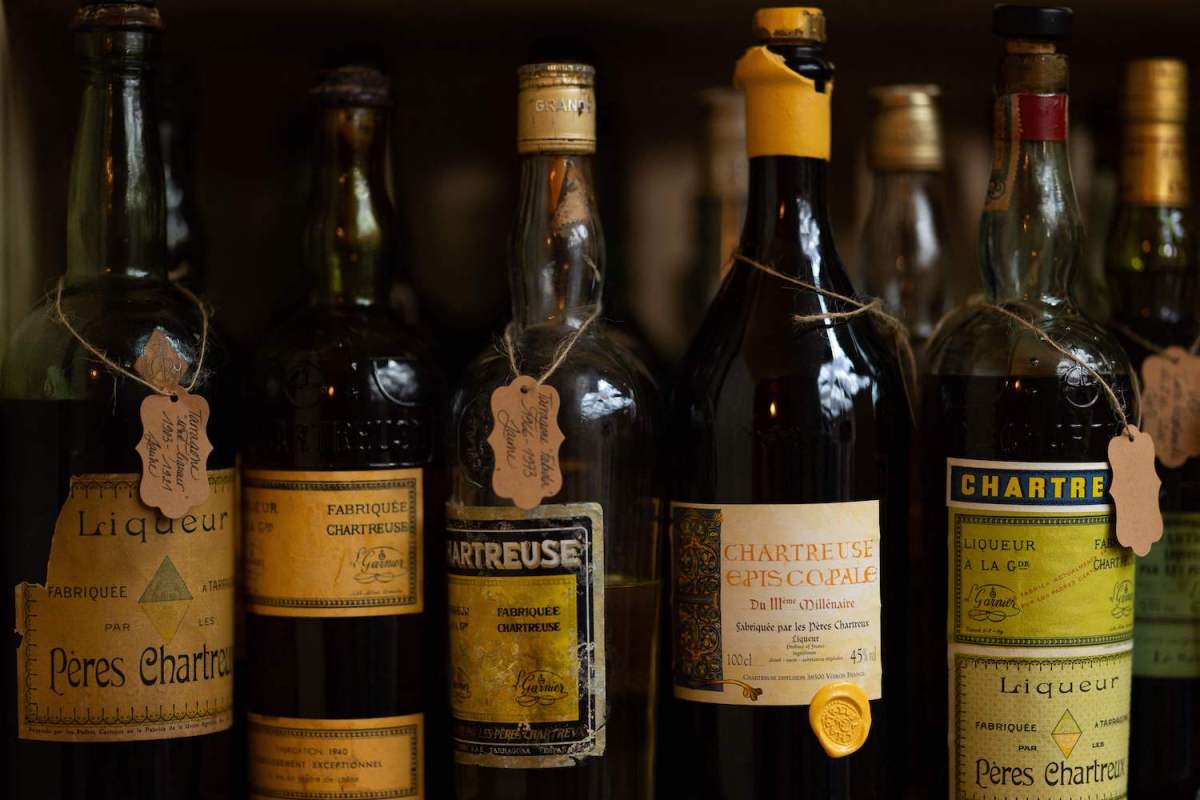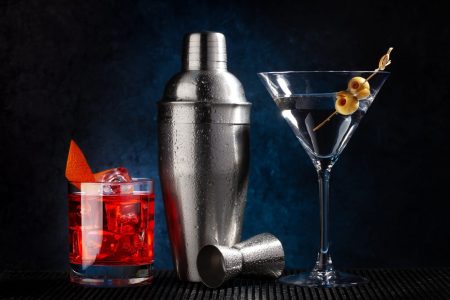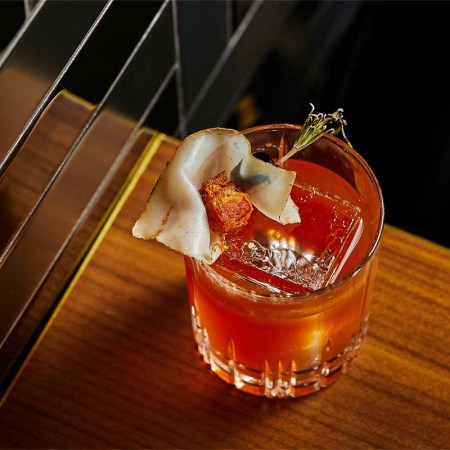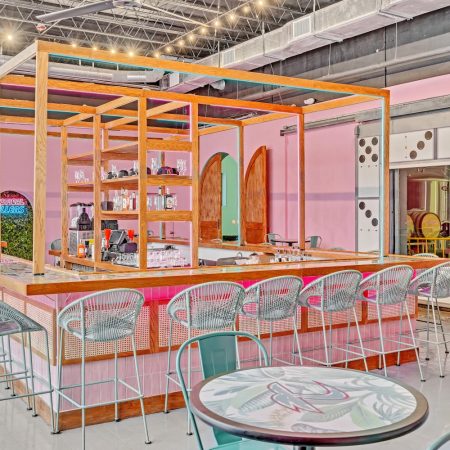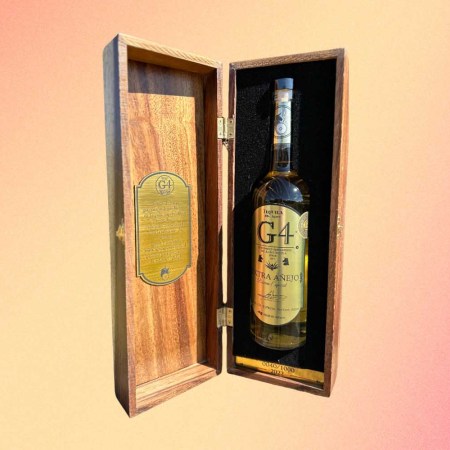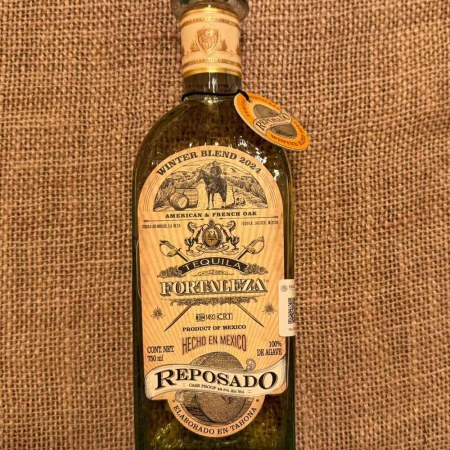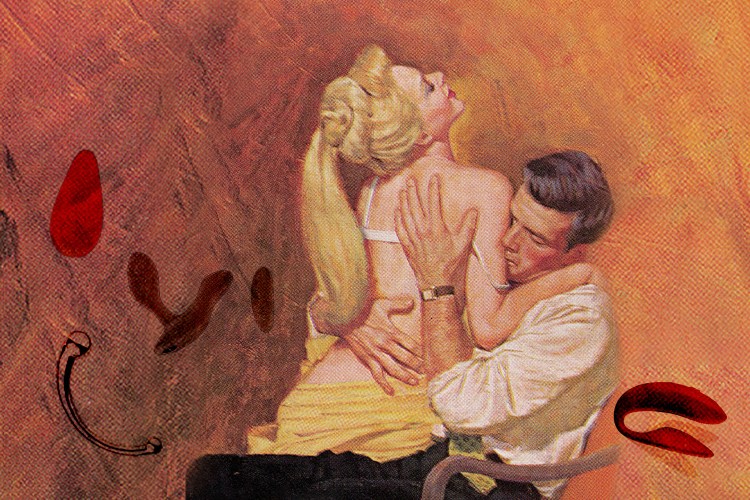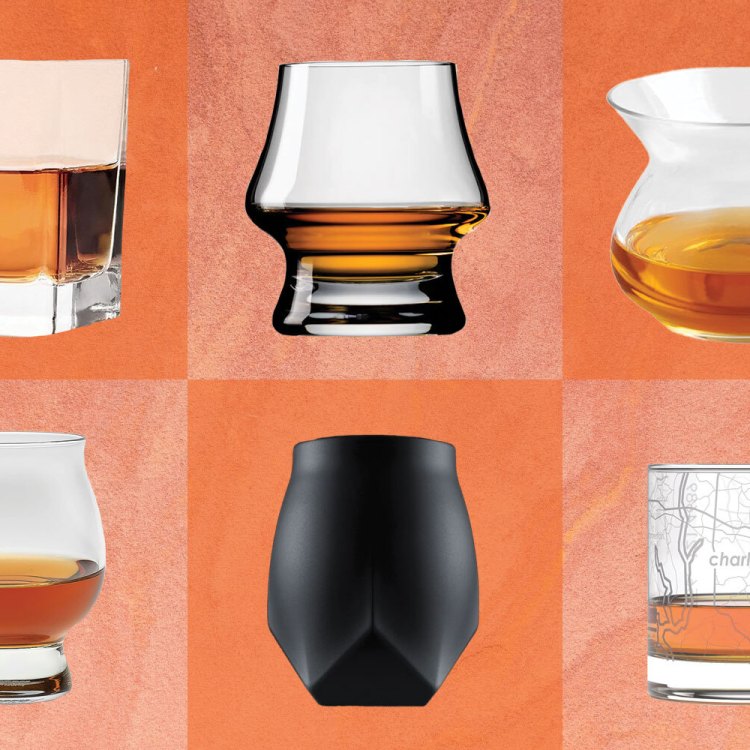Herbaceous, spicy, pungent and almost other-worldly in its verdancy, Chartreuse has recently become ubiquitous on craft cocktail menus. But its popularity is not what’s contributing to a dearth of this green (or yellow) elixir. For that, we can thank the Carthusian monks who, in keeping with time-tested tradition, are eschewing the “hustle” mentality and opting to severely reduce production of the spirit in order to “protect their monastic life and devote their time to solitude and prayer.”
Of course, this is not the first time the marketplace has seen scant supply of the supposedly life-giving elixir. The recipe, which features more than 100 botanicals, was perfected by the French monks in the 17th century and has long been a carefully kept secret. “Chartreuse has always been scarce,” says bartender Martin Stein, who notes that recipes to replicate it are widespread. One, dating from a German cookery dictionary from 1878, calls for combining vermouth essence, cinnamon essence, rose essence and clarified sugar with alcohol. “There even is a German product called Escorial, especially designed as a sub for Chartreuse,” he adds. “One hundred years old, exists to this day. Unfortunately.”
Stein is not alone in his love of the real thing. Both original green and yellow Chartreuse are beloved by bartenders worldwide, with the former, according to Keith Larry, beverage director of Little Rascal, boasting “stronger vegetal and spice notes,” edging out yellow as his favorite of the pair.
“I believe the yellow is a great pairing for a more savory cocktail, and green is the perfect modifier to beef up a bright, refreshing cocktail,” says Marshall Minaya, beverage director for Madame George and Valerie.
The monks’ decision to reduce production in deference to prayer is obviously pretty disappointing to many bartenders. “I trust in the monastic counsel to choose the allocations wisely,” Stein wrote in an open letter to the “valuable Carthusian monks” on Instagram. “While the growing worldwide affection for Chartreuse does not come surprisingly at all, it is an abomination to find some Kevin out in the sticks drinking, for example, Chartreuse and coke.”
Stein says that in his mind, Chartreuse is not meant for mixing and should rather be drunk neat. “Since I am an older bartender, I still love to shoot it and consider it something like a Jägermeister for adults,” he says. “A nice shot of Chartreuse might be replaced by more Chartreuse or a different kind of Chartreuse, but not with something else.”
That said, there’s a bit more flexibility in the cocktail world, where a similarly herbal profile can be evoked with something like génépy, an Alpine herbal liqueur. “It’s made from the same flower/plant as Chartreuse but distilled in a different way,” says Ruba Khoury, chef-owner of Dirty Lemon cocktail bar in Paris. “It gives that anise-y licorice flavor we usually look for in Chartreuse.”
It’s a suggestion echoed by Allison Kave, co-founder of Paris’s Abricot cocktail bar. “While not an exact replacement by any means, I’ve subbed in génépy for Chartreuse in a pinch,” she says.
6 Podcasts to Check Out If You Love Cocktails and Mixology
Listen and learn (with your favorite drink in hand, of course)Minaya agrees, adding Faccia Brutto’s Centerbe as another herbal option. “Centerbe is the color you’re familiar with when it comes to green Chartreuse, and the flavor and aroma certainly do not disappoint,” he says.
Larry agrees. “Faccia has more cooking herbs like tarragon,” he says. “More fresh herb flavor.”
As a replacement for yellow Chartreuse, Minaya suggests Strega, which he terms a “witchy” liqueur rich in more than 60 botanicals, including saffron as a “key player.” “Strega is one of my favorite herbaceous liqueurs to pull if yellow is not around, or even if it is,” he says.
But when it comes to cocktails, like the modern classic Naked & Famous (mezcal, yellow Chartreuse, Aperol and fresh lime juice) or old-school stalwarts such as the Bijou (gin, vermouth and green Chartreuse) and Last Word (gin, lime, green Chartreuse and maraschino liqueur), you may do better going totally off-script. “Like pretty much all cocktail lovers, my appreciation for the Last Word runs deep, and it’s one of my all-time favorites,” says cocktail expert and author Forest Collins. But if a craving for this cocktail strikes and she has no Chartreuse, she says she’d shake up a Paper Plane, a modern classic made with equal parts bourbon, Aperol, Amaro Nonino and lemon juice. “It may not look like an expected substitute, but it has the same refreshing quality and great balance of sour, sweet and herbal,” she adds.
Kave takes a similar approach. “If I’m looking for a cocktail with a hint of Chartreuse’s herbaceous notes, I might shake up a Gimlet and add in a bit of Suze or Salers gentiane,” she says.
Minaya, who loves adding a quarter-ounce of green to his Gin Rickeys, notes that a highball with one and a half ounces of Dolin Blanc and a half ounce of Dolin Genepy topped with Fever Tree Light Tonic (with a grapefruit twist “if I was feeling frisky”) would be just as refreshing. Pete Vasconcellos, partner and beverage director of Albert’s Bar in midtown Manhattan, says that he loves Chartreuse in Piña Coladas. “A ‘Piña Verde’ is unlike any other drink, [but] a well-made Piña Colada with mezcal, a funky Clairin or Charanda rum would scratch the itch.”
But for Stein, the fact remains that Chartreuse is what we all hope it to be: irreplaceable. “You might work with a bit of absinthe and different herbal approaches, but it’s still hard,” he says. “The more important Chartreuse is for the drink, the harder it is to replace. There are, of course, high ABV herbal liqueurs, but they all work very differently. A Vieux Carré would not work with Chartreuse, and a Last Word not with Bénéditctine. It always would be a different drink.”
Moral of the story? Buy a bottle of Chartreuse when you see it, but open your palate to exploring new flavors, cocktails and spirits as well.
Join America's Fastest Growing Spirits Newsletter THE SPILL. Unlock all the reviews, recipes and revelry — and get 15% off award-winning La Tierra de Acre Mezcal.
